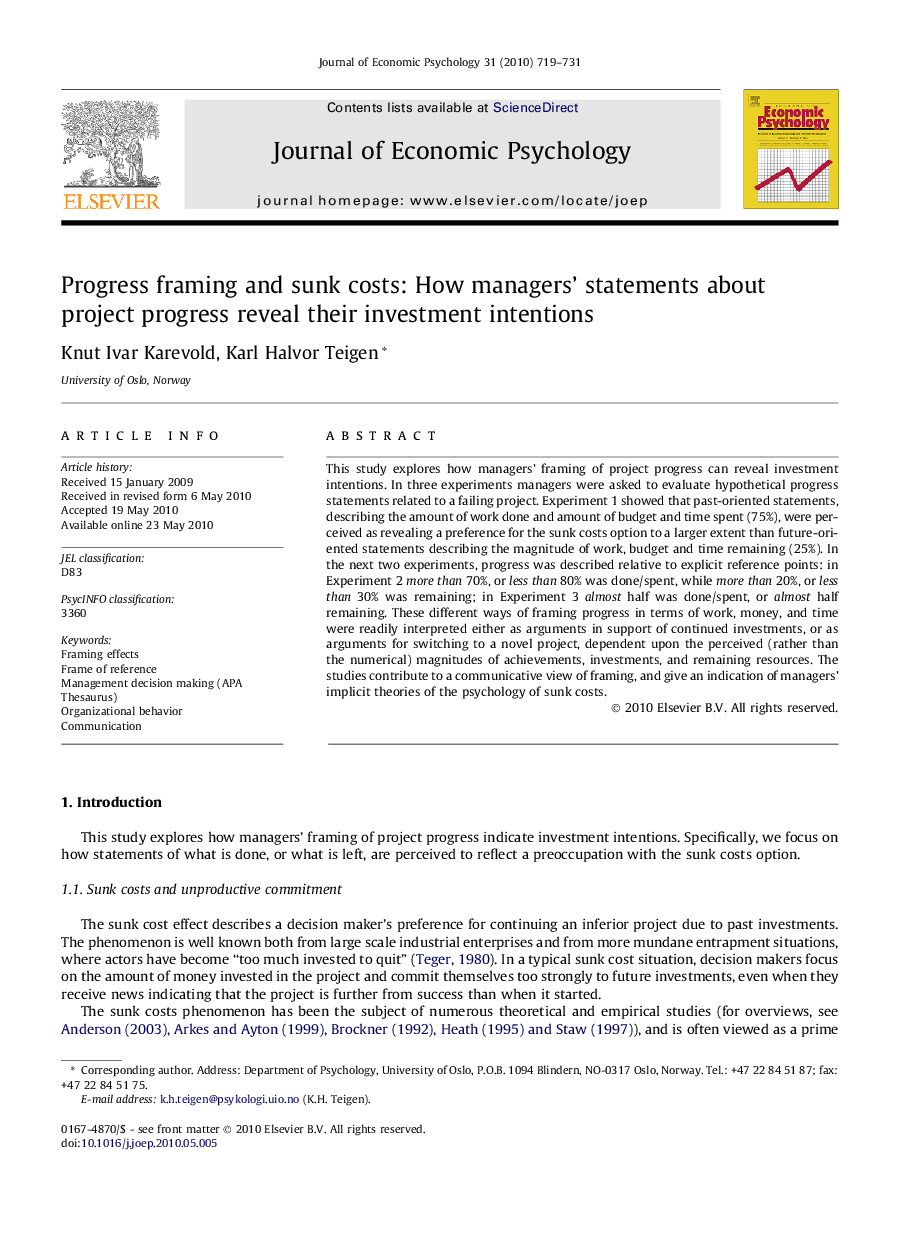| Article ID | Journal | Published Year | Pages | File Type |
|---|---|---|---|---|
| 885291 | Journal of Economic Psychology | 2010 | 13 Pages |
This study explores how managers’ framing of project progress can reveal investment intentions. In three experiments managers were asked to evaluate hypothetical progress statements related to a failing project. Experiment 1 showed that past-oriented statements, describing the amount of work done and amount of budget and time spent (75%), were perceived as revealing a preference for the sunk costs option to a larger extent than future-oriented statements describing the magnitude of work, budget and time remaining (25%). In the next two experiments, progress was described relative to explicit reference points: in Experiment 2 more than 70%, or less than 80% was done/spent, while more than 20%, or less than 30% was remaining; in Experiment 3 almost half was done/spent, or almost half remaining. These different ways of framing progress in terms of work, money, and time were readily interpreted either as arguments in support of continued investments, or as arguments for switching to a novel project, dependent upon the perceived (rather than the numerical) magnitudes of achievements, investments, and remaining resources. The studies contribute to a communicative view of framing, and give an indication of managers’ implicit theories of the psychology of sunk costs.
